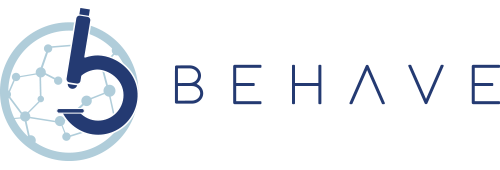 Prof. Joshua M. Epstein (New York University, New York, USA) has been granted an international visiting professor award here at the Department of Social and Political Sciences of the University of Milan thanks to the financial support of the “Departments of Excellence” grant. He will visit our department on May 2024 to give a series of lectures on “Generative and Inverse Generative Social Science: AI, Evolutionary Computing and the Future of Agent-Based Modeling” to PhD & Master students and the faculty. Online participants will be allowed to attend the lecture via a Zoom link (for any info on the link, please contact us via email here).
Prof. Joshua M. Epstein (New York University, New York, USA) has been granted an international visiting professor award here at the Department of Social and Political Sciences of the University of Milan thanks to the financial support of the “Departments of Excellence” grant. He will visit our department on May 2024 to give a series of lectures on “Generative and Inverse Generative Social Science: AI, Evolutionary Computing and the Future of Agent-Based Modeling” to PhD & Master students and the faculty. Online participants will be allowed to attend the lecture via a Zoom link (for any info on the link, please contact us via email here).
Here is the lecture programme:
Friday 3 May, 10:30AM-12:30, Department of Social & Political Science, Seminar Room, Via Passione 13:
Lecture 1: Generative Social Science and Agent_Zero: A Formal Alternative to the Rational Actor
Discussant: Prof. Flaminio Squazzoni
Abstract: In the epistemology of generative social science, to explain a macroscopic pattern, it does not suffice to demonstrate that it is a Nash equilibrium. Rather one must show how the pattern could emerge on time scales of interest in a population of cognitively plausible agents. Despite numerous deep anomalies, the rational actor model dominates the social sciences for lack of explicit formal alternatives. Although minimal and provisional, Epstein’s Agent_Zero is one candidate. Based on cognitive neuroscience, Agent Zero’s behavior results from the interaction of an affective module, a boundedly rational deliberative module, and social interactions with other emotionally driven and statistically hobbled agents. The model generates important macro-phenomena and individual behavior in groups that violate Rational Choice Theory.
Here is the video recording of Lecture 1.
Monday 6 May, 4:30-6:30PM, Department of Social & Political Science, Seminar Room, Via Passione 13:
Lecture 2: Inverse Generative Social Science: Backward to the Future
Discussant: Prof. Pietro Terna, University of Turin
Abstract: The agent-based model is the principal scientific instrument of generative social science. Typically, we design completed agents—fully endowed with rules and parameters–to grow macroscopic target patterns from the bottom up. Inverse generative science (iGSS) stands this approach on its head: Rather than handcrafting completed agents to grow a target—the forward problem—we start with the macro-target and evolve micro-agents that generate it, stipulating only primitive agent-rule constituents and permissible combinators. Concrete examples of iGSS and outstanding foundational issues surrounding it are discussed. An important goal of iGSS is to evolve cognitively plausible formal alternatives to the Rational Actor, with Agent_Zero as one possible point of evolutionary departure.
Here is the video recording of Lecture 2.
Tuesday 14 May, 4:30-6:30PM, Department of Social & Political Science, Seminar Room, Via Passione 13:
Lecture 3: Toward Cognitive Epidemiology
Discussant: Prof. Ilaria Capua, Johns Hopkings University
Abstract: Classical mathematical epidemiology excludes behavioral adaptation, which has shaped pandemics from the 1918 Flu, to COVID. Endogenous multiple waves in particular are mathematically precluded by the classical differential equations. In Epstein’s Coupled Contagion framework, the disease and fear of the disease are both contagious and interact to produce endogenous waves. In Triple Contagion: A Two Fears Epidemic Model, there is also fear of the vaccine, resulting in richer dynamics, where waves grow in amplitude. An Agent_Zero version with fear, distrust of government, and psychic numbing produces spatio-temporal wave dynamics. Applications to financial panics and crashes are discussed.

